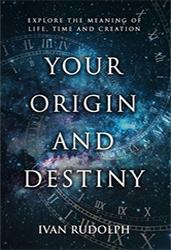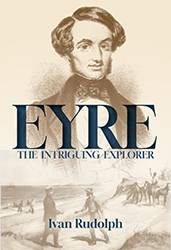Police Horses
Eyre ran into conflict with the mounted police at Moorundi, in part because he took them only rarely on his excursions, preferring Tenbury or another Aboriginal interpreter. He knew the tribes accepted him freely but feared the police, and it served his purposes to keep it that way. But bored, resentful policemen became stumbling bocks to Eyre’s work.
Another issue was that Eyre never seemed to have sufficient horses on hand to accomplish what was needed during excursions. He had written to Grey and the Colonial Secretary mentioning this. To his first request Grey responded, “It would certainly be very desirable that a third horse should be sent to Moorundi, but at the moment the government has not horses enough for headquarters to perform the requisite duties.” He pointed out that were no funds to buy Eyre another horse to act as a packhorse.
Both problems came to a head in June 1842 when he went to inspect the country in the vicinity of Mount Bryan and he sequestered two police horses, the mounts of Corporal William Rose and P/C John Dunning Carter, his own horses having escaped temporarily. He would ride one police horse and Tenbury the other. Because the mounted police were under his immediate orders, they had to obey, but Rose and Carter were most unhappy about it and Eyre scented further trouble.
Eyre wrote a report to Grey on the 25th of June 1842 describing his expedition to Mt Bryan on the police horses and the discoveries he made during it.
Rose and Carter were close friends. Eyre had had other run-ins with them during which each one appeared to cover for the other. Cannily, they waited until their stint at Moorundi had been completed before lodging a formal complaint to O’Halloran. In August, as a consequence of their complaint that Eyre had used their horses for personal pleasure, O’Halloran wrote Eyre a rather sharp note in which he warned that should the horses have come to any harm (they didn’t) that Eyre would have been liable for their replacement because, “They have been taken without my consent, one also being unshod, and for a purpose not in any way connected with Police duties.” He added:
Permit me with all courtesy and kindness to remind you that a policeman’s horse forms the most essential part of his equipment and for the safety and condition of which he is held personally responsible. A man, therefore, cannot be separated from his horse without my orders becoming a blank letter [ineffectual], and in which unpleasant position I well know one of your frank disposition will not again willingly place me.
Eyre’s firm response to O’Halloran’s letter included:
Since a detachment of mounted police have been stationed at the Murray under my orders no instance has ever occurred of Police horses having been made use of otherwise than for the service of government and under His Excellency’s instructions. Referring to the case cited in your letter, I would beg to remind you that at no very distant a date I received His Excellency’s instructions to make use of Police horses to examine the nature of the country around Mt Bryant.
That, of course, closed the debate, Grey’s executive orders taking precedence over any issued either by O’Halloran or Eyre.
However, Eyre was still short of horses!
Grey wrote to O’Halloran requesting another horse be provided for Eyre if at all possible. O’Halloran refused huffily, using a shortage of horses in the mounted police as his reason.
Eyre continued in charge of the mounted police stationed at Moorundi and did not use police horses again, other than on specific instruction from Grey.
As characterised his dealings with others, Eyre carried no resentment towards Rose and Carter. In fact he selected Rose, despite their earlier clashes, for his flying party when searching for C.C. Dutton.
Unfortunately Rose and Carter, both of whom enjoyed good reputations within the mounted police force, suffered personal tragedies after leaving Moorundi.
Corporal Rose was speared during an altercation with an Aborigine at Mount Barker near Adelaide in 1844. He had foolishly neglected to take a carbine with him when setting out to apprehend Aborigines in possession of stolen goods. Rose survived but consequences of the spearing remained with him for life. His spearing resulted in fresh orders to policemen to carry their carbines with them at all times on active duty in the bush.
P/C John Dunning Carter was drowned in 1847 in the Murray when the bark canoe he was in tipped over.



